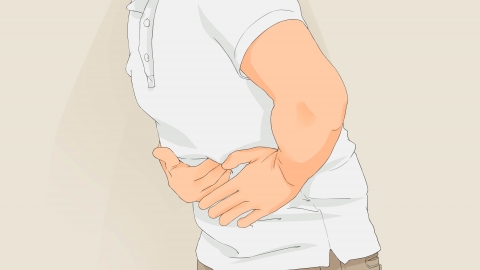What are the symptoms of Helicobacter pylori infection?
Generally, Helicobacter pylori infection is a common gastric infectious condition that easily causes damage to the gastric mucosa. Common symptoms mainly include upper abdominal pain, acid reflux with heartburn, nausea and vomiting, abdominal distension with belching, and loss of appetite. Detailed analysis is as follows:

1. Upper Abdominal Pain: In the early stages of Helicobacter pylori infection, upper abdominal pain often occurs, typically presenting as dull, distending, or burning pain. The pain is mainly localized beneath the xiphoid process or around the navel, and may worsen when the stomach is empty or after meals. Some individuals experience pain with a certain regularity.
2. Acid Reflux and Heartburn: Due to the infection, gastric mucosal function is impaired, leading to abnormal over-secretion of gastric acid. Patients frequently experience symptoms of acid reflux, feeling acidic substances in the stomach flow backward into the esophagus or even the mouth, accompanied by a sensation of heartburn and a burning feeling behind the breastbone or in the upper abdomen.
3. Nausea and Vomiting: Gastric inflammation caused by the infection can irritate the gastric mucosa, leading to disordered gastric motility. Patients often experience nausea, and severe cases may develop vomiting. The vomit typically consists of gastric contents, and some individuals may temporarily feel relief from nausea after vomiting, although symptoms may recur after eating.
4. Abdominal Distension and Belching: Helicobacter pylori infection may impair gastric digestive function, prolonging the retention time of food in the stomach, which ferments and produces gas. This leads to abdominal distension with a significant feeling of fullness, along with frequent belching, which helps relieve the discomfort by releasing gas.
5. Loss of Appetite: Due to recurring discomfort such as upper abdominal pain, abdominal distension, and acid reflux, patients often experience a decreased interest in food, resulting in reduced appetite and significantly lower food intake than before. Some individuals intentionally eat less to avoid exacerbating discomfort after meals.
Patients are advised to maintain regular eating habits, avoid overeating, and reduce consumption of spicy, raw, cold, or overly acidic irritating foods. Maintaining a regular sleep schedule and avoiding excessive fatigue can also help reduce the burden on the stomach and assist in alleviating symptoms.







